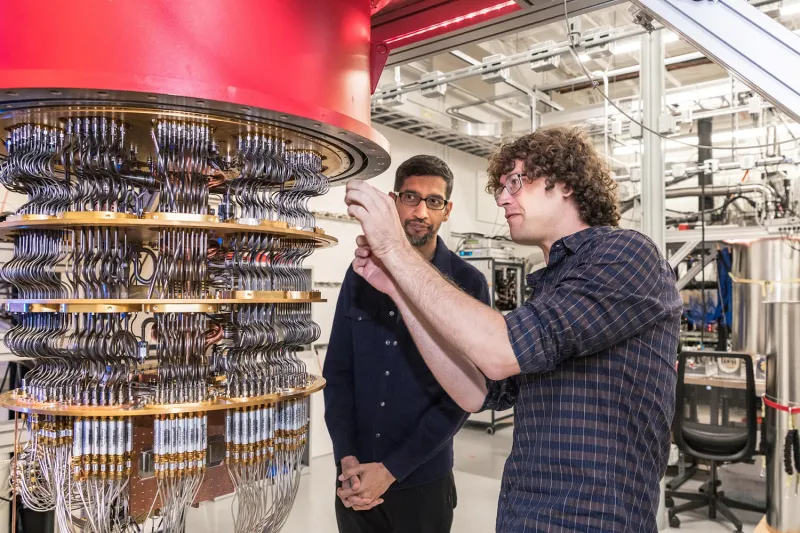Quantum computing stands apart from classical computing by using quantum bits, or qubits, that can represent both zero and one simultaneously. This dual-state capability allows qubits to interact in ways that dramatically accelerate the speed and complexity of processing tasks. These properties underpin the promise of quantum systems to outperform traditional supercomputers.
Two Competing Quantum Technologies in Development
There are two primary types of quantum computing: universal gate-based models and annealing models. Gate-based quantum computing is pursued by major players like Google, IBM, Microsoft, and Amazon. Each company uses different qubit technologies. Annealing quantum computing, on the other hand, is championed by companies such as D-Wave, which focuses on commercial optimization applications.
According to Mandy Birch, CEO and founder of TreQ, a quantum systems engineering firm, annealing models are “a different technology” and are already commercially viable. While annealing does not provide exact answers, it serves as a practical method for operational improvements. This allows companies to gain efficiencies beyond what classical systems can deliver.
Quantum Supremacy and Advantage Show Tangible Progress
Google and D-Wave both aim to achieve what is known as quantum supremacy, a milestone in which a quantum computer can complete a complex calculation faster than any classical computer. At the SXSW conference, Charina Chou, COO of Google Quantum AI, stated, “Quantum computers are capable of solving problems that are impossible for AI or supercomputers even in the best case.”
D-Wave and Vancouver’s Quantum Matter Institute claimed in March they achieved the first real-world demonstration of quantum supremacy using annealing technology. Their simulation of magnetic materials took minutes using quantum computing—a task that would require nearly one million years for a classical supercomputer.
D-Wave CEO Alan Baratz explained this could enhance technologies like sensors used in MRIs, heart scanners, and brain imaging devices. “The benefit that comes from this is the ability to see things in the human body that we still can’t see for better understanding, better diagnosis,” he said.
Commercial Adoption Already Underway
D-Wave reports that its technology is already in production with firms such as Mastercard and NTT Docomo, with practical use cases including workforce scheduling optimization for Patterson Food Group. Although D-Wave’s revenue remains modest—$1.9 million in the last quarter—Baratz emphasized its commercial readiness. “Not 30 years from now, not 20 years from now, not 15 years from now,” he told CNBC.
Quantum Computing Gains Momentum in Medicine
Medical applications are among the most compelling for quantum computing. Chou reflected on her husband's past battle with cancer and noted how quantum technology could one day simulate molecules at a fundamental level to accelerate drug discovery. “Calculating fundamentally what is happening inside these molecules themselves” could change treatment strategies, she said.
Pharmaceuticals May Benefit Most from Quantum Simulation
Mandy Birch sees drug development as a major opportunity. She described how current molecular dynamics are too complex for classical computing, but quantum systems can simulate millions of molecular interactions virtually. “Just imagine, in a drug discovery process, instead of having to do all the wet chemistry one experiment at a time, being able to run through millions of simulations on a computer,” Birch said.
This approach could improve the likelihood of success in pharmaceuticals and may also benefit industries like aerospace and defense. Birch noted, “Technology is always neutral. It’s when you put it into human hands that it does good or bad.”
Optimizing Logistics and Energy Use with Quantum
Birch also highlighted more routine applications like logistics and energy. “Then there are more boring and ubiquitous things like optimization,” she said. Even a 1% reduction in fuel costs can yield major savings for logistics companies like FedEx or UPS. Such applications are already in use today, showing the growing impact of quantum technologies in real-world scenarios.
Quantum Solutions Likely to Work in Hybrid Models
Despite quantum’s advantages, most systems will likely be hybrid in the near term, combining quantum hardware with supercomputers and AI systems. While some tasks can be done entirely with quantum technology, the existing computing infrastructure will continue to play a role.
PHOTO: REUTERS
This article was created with AI assistance.
Read More






 Saturday, 31-01-26
Saturday, 31-01-26







